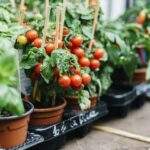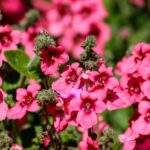Delving into 5 Organic Gardening Tips to Grow Healthy Vegetables, this introduction immerses readers in a unique and compelling narrative, with casual formal language style that is both engaging and thought-provoking from the very first sentence.
Organic gardening is not just a trend; it’s a way of life that promotes the well-being of both people and the planet. In this guide, we will explore essential tips to help you grow your own healthy vegetables naturally and sustainably.
Introduction to Organic Gardening: 5 Organic Gardening Tips To Grow Healthy Vegetables
Organic gardening is a method of cultivating plants without the use of synthetic pesticides, fertilizers, or genetically modified organisms. It focuses on using natural techniques to promote soil health, biodiversity, and ecological balance. The benefits of organic gardening include producing nutritious and flavorful vegetables, reducing chemical exposure, supporting pollinators, and conserving water and soil resources.
Importance of Growing Vegetables Organically
Organic gardening plays a crucial role in promoting environmental sustainability and human health. By avoiding synthetic chemicals, organic farmers protect soil organisms, beneficial insects, and wildlife. Organic practices also help prevent water pollution and reduce greenhouse gas emissions. Growing vegetables organically ensures that the produce is free from harmful residues and retains its nutritional value.
Soil Preparation and Maintenance
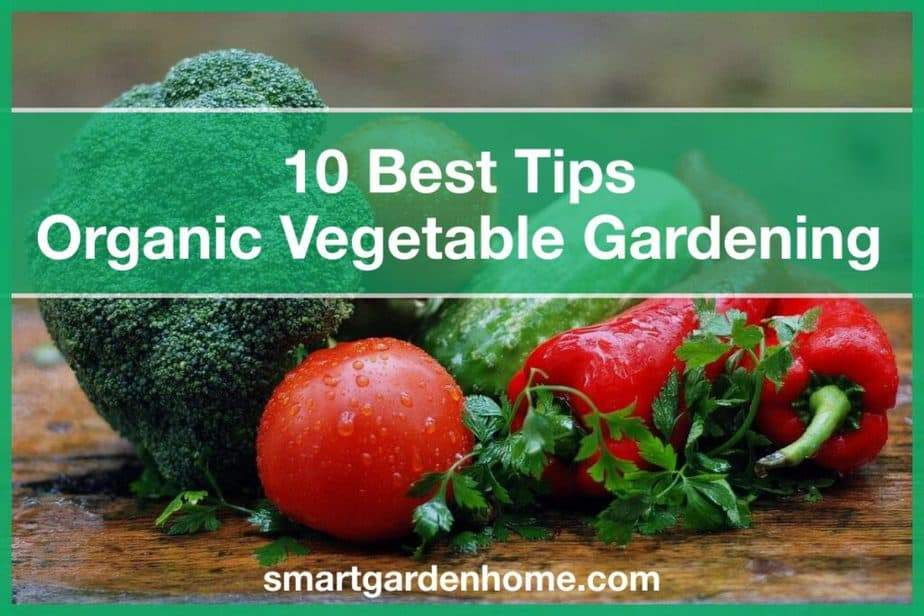
Soil quality is crucial in organic gardening as it directly impacts the health and growth of vegetables. Healthy soil provides essential nutrients and a supportive environment for plants to thrive.
Organic Soil Preparation for Vegetable Growth
Preparing organic soil for vegetable growth involves creating a nutrient-rich environment that supports plant growth without the use of synthetic chemicals. Here are some steps to prepare organic soil:
- Start by testing the pH level of the soil to determine its acidity or alkalinity.
- Amend the soil with organic matter such as compost, manure, or leaf mold to improve its fertility and structure.
- Aerate the soil by tilling or loosening it to promote better root growth and water absorption.
- Avoid using chemical fertilizers and pesticides to maintain the organic integrity of the soil.
Methods to Maintain Soil Fertility Naturally
Maintaining soil fertility naturally is essential for the long-term health of your organic garden. Here are some methods to ensure your soil remains fertile:
- Rotate crops each season to prevent nutrient depletion and reduce the risk of soil-borne diseases.
- Practice cover cropping to protect the soil from erosion, suppress weeds, and add nutrients back into the soil.
- Use mulch to retain moisture, regulate soil temperature, and prevent weed growth.
- Encourage beneficial soil organisms like earthworms and beneficial bacteria by avoiding harsh chemicals.
Plant Selection and Companion Planting
When it comes to organic gardening, selecting the right vegetable plants is crucial for a successful harvest. Understanding companion planting can also play a significant role in promoting healthy growth and deterring pests naturally.
Benefits of Companion Planting, 5 Organic Gardening Tips to Grow Healthy Vegetables
Companion planting involves growing certain plants together to benefit one another in various ways. Some plants can attract beneficial insects, repel pests, provide nutrients to the soil, or offer structural support to neighboring plants. This symbiotic relationship can help improve overall plant health and yield.
- One classic example of companion planting is growing marigolds alongside tomatoes. Marigolds are known to deter nematodes and other harmful insects that can damage tomato plants.
- Another beneficial combination is planting basil near tomatoes to improve their flavor and repel pests like aphids and hornworms.
- Beans and peas are also great companion plants as they can fix nitrogen in the soil, benefiting neighboring plants like corn and squash.
Natural Pest Control Methods
Organic gardening promotes a holistic approach to growing vegetables without the use of harmful chemicals. Chemical pesticides not only harm the environment but can also leave residues on vegetables, affecting our health. It is essential to explore natural ways to control pests in an organic garden to ensure the health and safety of both the plants and the consumers.
Beneficial Insects for Pest Management
Using beneficial insects is a natural and effective way to control pests in the garden. These insects prey on harmful pests, helping to maintain a balance in the ecosystem without the need for chemical intervention. Some common beneficial insects include ladybugs, lacewings, and parasitic wasps. Introducing these insects into the garden can help keep pest populations in check and reduce the need for pesticides.
Watering and Irrigation Techniques
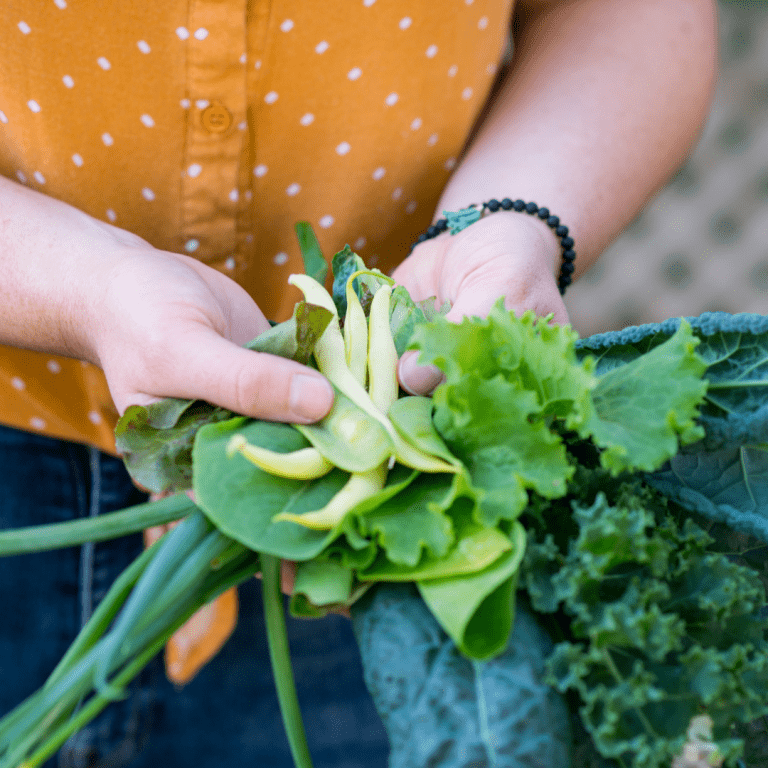
Proper watering is essential for the health and growth of vegetable plants. Water helps transport nutrients from the soil to the plants, aids in photosynthesis, and maintains turgidity in plant cells.
Organic Irrigation Methods
Using organic irrigation methods not only helps conserve water but also promotes healthier soil and plants. Some techniques include:
- Drip Irrigation: Delivers water directly to the base of plants, reducing evaporation and water waste.
- Mulching: Mulch helps retain moisture in the soil, reducing the frequency of watering.
- Rainwater Harvesting: Collecting rainwater in barrels and using it to water plants is a sustainable way to irrigate your garden.
Creating a Watering Schedule
Different vegetable varieties have varying water requirements. Here are some tips for creating a watering schedule:
- Check the soil moisture: Stick your finger into the soil to check for moisture before watering. If it feels dry, it’s time to water.
- Morning watering: Watering early in the morning allows plants to absorb moisture before the heat of the day.
- Adjust based on weather: During hot and dry spells, increase the frequency of watering.
In cooler and rainy weather, reduce watering to prevent overwatering.
Last Recap
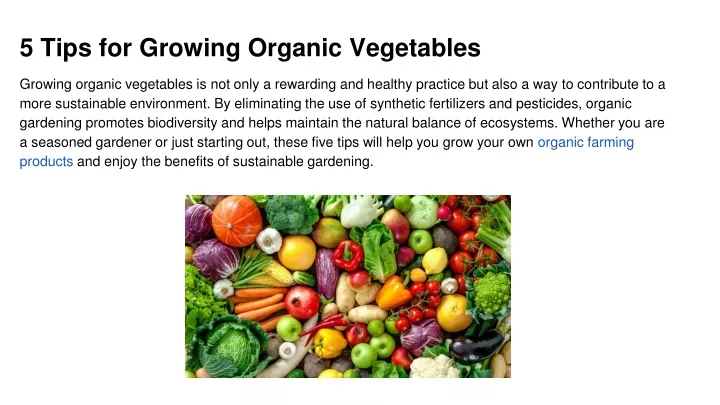
In conclusion, embracing organic gardening practices not only ensures a bountiful harvest of nutritious vegetables but also contributes to a healthier environment overall. By following these tips, you are not just growing food, but you are nurturing the Earth and your well-being.
